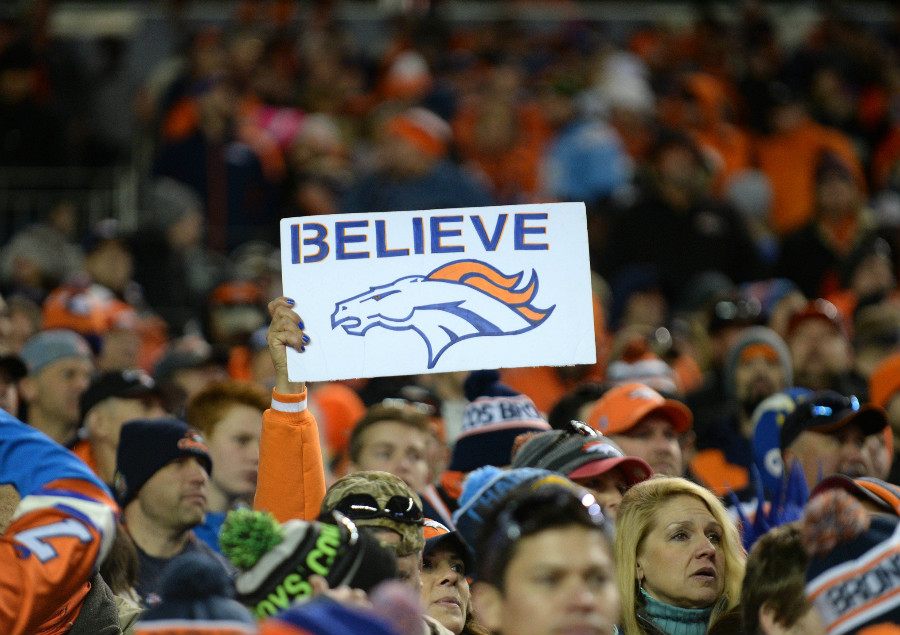More often than not, the stats tend to back up what we’re seeing on the football field. Whether we’re talking about the advanced analytics or the basic statistics, they’re only a product of the on-field play, as are our visual impressions.
But in some cases, the stats and our initial reactions don’t match up; sometimes, whether it’s thanks to a fancy algorithm or an advanced eye, the stats tell a different story than the one we watched on the television screen.
Yesterday was one of those cases.
The Broncos victory over the San Diego Chargers seemed to unfold like a magical storybook; Peyton Manning made his long-awaited return, the offense finally came together and the Broncos secured their fifth straight AFC West title. It was perfect. But it didn’t exactly happen the way you may have expected.
Thanks to Pro Football Focus, here are three ways in which the advanced analytics don’t back up our immediate impressions.
The offensive line actually played great:
I can understand where this could have come across on Sunday, but the Broncos quarterbacks, whether that be Manning or Osweiler, were still under pressure on over 45 percent of their drop backs, giving up two sacks; that’s not exactly great.
But according to Pro Football Focus, aside from Michael Schofield, who had the lowest grade (-1.2) on the offense, the Broncos top four offensive performers were their offensive lineman.
Not only did Matt Paradis have his best game of the season (5.1), but he continued a three-game stretch of positive grades from PFF; before Week 15, he had only had two grades over 1.0.
And after missing the majority of Denver’s last three games, Evan Mathis recorded his second best performance of the year (4.5), securing him a top-five grade in PFF’s overall guard rankings for the fourth time in the last five years (he was sixth last season). It should be noted that almost all of that came from his run-block grade (29.1), which was highest in the league, as he actually finished the season with a negative pass-block grade (-3.0; 39th in the NFL).
Likewise, both Max Garcia (3.3) and Louis Vasquez (2.7) had their best grades of the season.
Part of it has to do with the fact that the Chargers defense is just plain bad, but you’d have to hope it’s a sign of some improvement, too. Not to mention, Kubiak finally put Schofield out of his misery.
Steve Williams could have had a better game:
If you didn’t know who Steve Williams was before yesterday’s game, I’d understand. If you don’t know who Steve Williams is today, then you obviously didn’t watch the game.
For a quick refresher, Steve Williams is the man who gave Peyton Manning his job back.
Through the first two quarters of the game, I’m not sure I’ve ever seen a single player have as much of an impact on a game as the Chargers cornerback, Williams, did. In the span of just 15 minutes, he had an interception, sack, two forced fumbles and a fumble recovery, giving him a hand in three of the Broncos’ four first-half turnovers.
And yet, PFF gave Williams a grade of just -1.1, his third worst of the year.
While Williams had some big “pop” plays, apparently there wasn’t much else on his resume. Matched up almost entirely against Emmanuel Sanders, Williams scored a -2.7 coverage grade as he allowed Sanders to catch five of his six targets for 99 yards. In fact, it was only after Sanders beat Williams for a 46-yard reception that the Chargers was able to force the first of his two fumbles.
It just goes to show that a simple box score can’t tell the whole story.
This piece brought to you in part by …
[adrotate banner=”16″]The Denver Broncos best quarterback was Brock Osweiler:
When we think back on Sunday’s game in a few years, all we’ll remember is Peyton Manning’s triumphant return. Nobody will remember that Brock Osweiler completed 64 percent of his passes for 232 yards and a touchdown, or that Manning only totaled 69 yards through the air on six drives.
Apparently, though, PFF noticed, as they gave Osweiler (1.6) a significantly higher grade than Manning (.3).
Where Osweiler really shined was when facing no pressure, which was on just over 50 percent of his drop backs; he completed 75 percent of his passes for 153 yards and a touchdown, while producing a QB Rating of 109.7. Conversely, Manning only completed 50 percent of his passes for 38 yards and no touchdowns, with a QB Rating of 70.1.
And while the Broncos only produced seven points under Osweiler, anybody who watched the game can tell you that Osweiler was the least of the Broncos’ problems. Two of the Broncos five turnovers were fumbles that Osweiler had nothing to do with, and on both of his interceptions, the ball was affected before it reached the receiver. The only turnover that can partially be blamed on Osweiler was the blind-side sack-fumble, and that’s just because you’d hope he would have seen it coming pre snap.
Otherwise, Osweiler drove the Broncos up and down the field all day.
To be fair, though, once Manning came in, the Broncos became a run-first offense and were successful in doing so; while, as Manning said Sunday night, you can’t exactly give him too much credit for handing the ball off, you can’t blame him, either.
